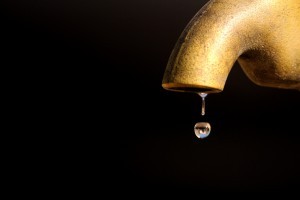Water Filters: Which One is Right for You?
Do you have clean water? Want to remove pollutants from your tap water? Invest in a 5 stage R/O system and make your tap water drinkable. Call the experts at Chas Roberts today!
Arizona plumbing services professionals have seen commercials and advertisements galore for all sorts of water filtration methods to purify the water we drink. Brands like Brita, Pur and Zero Water all claim to be the best at what they do: removing heavy metals from your drinking water and making it safe to consume. There are many schools of thought on what makes drinking water “safe.” Some argue that anything but bottled water is hazardous, while others believe that minerals found in tap water, such as fluoride, are essential to human health.
This is without considering the monetary cost of drinking water: a 2007 New York Times article calculated that drinking eight glasses of tap water a day for a year would cost under 50 cents, while drinking the equivalent in bottled water would cost $1,400. We took a hard look at the top three retail water filters to find out if they are worth the investment.

Brita
Brita has a variety of options for filtration methods including pitchers, water bottles and faucet filtration systems, which respectively focus on filtering a host of minerals and chemicals like zinc, cadmium, chlorine, copper, and mercury. The filters contain activated carbon and ion exchange resins, which remove unwanted particles from your drinking water. The selling point on Brita filters is that they make the overall taste of water better by removing odors and contaminants— thus reducing the risk of long-term illness.
Pur
Pur is very similar to Brita, the biggest difference being that Pur does not manufacture filtered water bottles like Brita does. While Brita only filters for minerals like zinc and cadmium, Pur goes the extra mile and filters out pollutants like herbicides and certain pharmaceutical drugs. While Pur has fewer products, the filters they do manufacture are more widespread in terms of what they remove from the water.
Zero Water
Zero Water’s products are very similar to those of Pur and Brita, but what Zero Water has that its competitors don’t is a region-by-region layout of just how unclean an areas water is. Type in your zip code to the Total Dissolved Solids measurement and get a reading of how safe or unsafe the water in your area is to drink. In the Phoenix Valley, the typical score seems to be between 400-500, but some areas have water that has more than 500 milligrams of total dissolved solids per liter, which, according to the Zero Water site, it over the EPA maximum.
Verdict
All things considered, each of these water filtration systems seems to be about equal in terms of what they offer, with few advantages and disadvantages over each other. The cold hard truth is that no one method of drinking water is fool-proof; contaminants can make their way into tap water, bottled water, and filtered water. It’s up to the consumers to determine how much of a risk they want to take in terms of their health and how much money they are willing to spend on purifying their water supply.
Which water purification system do you prefer? Leave us a comment on Facebook with your thoughts. For more information about Arizona plumbing services or Phoenix emergency plumbing, contact us today.

